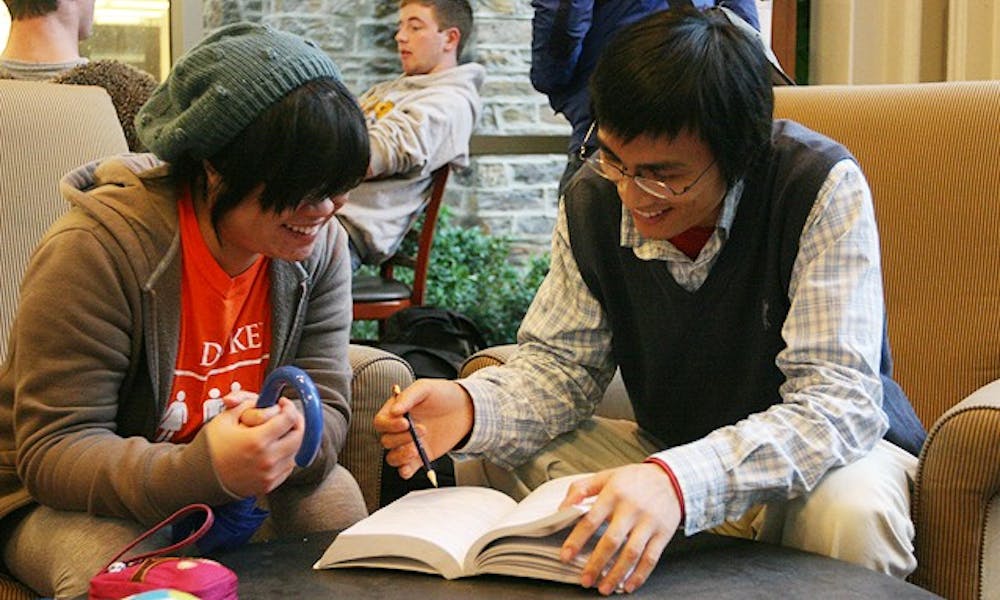Almost half of all Duke undergraduates study abroad, but through the Duke Language Partners program, all students can practice speaking a foreign language without leaving campus.
DLP allows undergraduates, graduates and Durham residents to learn and improve their foreign language skills. It also benefits participants who speak English as their second language. Those interested in the program answer a questionnaire and are then matched up with an appropriate partner. Sessions are casual and can be arranged at the convenience of the participants.
“[DLP] offers a much more relaxed way to learn a language... [and] a great way to complement [language] classes—you can learn formal grammar and usage in the classroom, and then more informal conversational skills outside of it,” DLP Program Assistant John Stokes, a senior, wrote in an e-mail.
Stokes said DLP is an informal program with no prerequisites other than having an interest in languages and a language to share.
“You pay nothing, just pay your language,” said Shadi Al-Abdual-Razaq, a graduate exchange student from Jordan who teaches Arabic while his DLP partner helps him improve his English.
Harriet Whitehead, a Durham resident, joined the program to improve her Spanish.
“I had been trying to learn Spanish on my own for a couple of years, but making very slow progress,” Whitehead wrote in an e-mail. “My first language partner, who is now a good friend, got me over the hump of speaking to people in the language in just two weeks. I took my vacation in Mexico then, and actually used the language.”
In addition to helping improve languages, Stokes said the program was intended to encourage interaction between international and American citizens.
“There was at least the perception that the domestic and international populations at Duke weren’t really engaging with each other, and instead just co-existed,” he said.
Stokes also said the program is an opportunity for undergraduates to be paired with graduates and scholars and meet people they would not otherwise get to know.
Lin Wang, a Ph.D. candidate in electrical and computer engineering, said he and his language partner Shirley Lung, a senior, enjoy their casual weekly meetings. Their conversations help “expand our thinking and vision,” he said.
The experience, however, can depend on the partner, Lung said, adding that her two previous language partners did not interact with her as much as Wang does.
“Since they were a lot older than I was, they didn’t have a lot of time to devote,” she said.
Wang said that because many partnerships are between undergraduate and graduate students, it would have been helpful if the program included an introduction.
“Maybe they could give us some general instruction for us to... communicate better and maybe good topics [for conversation],” he said.
Stokes said Chinese, Japanese, French, Spanish and English are the program’s most popular languages. The program’s offered languages, however, depend on the people who apply to participate. Applicants, therefore, may not be able to practice the languages they want.
“Supply and demand tends to be a big issue with this program,” he said. “For example, we’ve already exhausted our list of Spanish-speakers but have many Korean-speakers who still need partners.”
Lisa Giragosian, International House senior assistant director, said the program had been in existence long before she started working at Duke 13 years ago.
At the end of last year, the program had more than 250 applicants. Currently there are 165 participants—including approximately 40 undergraduates, 50 graduates, 20 international scholars and 30 Durham community members.
“[DLP is] a fantastic way to become friends with someone you otherwise would never know,” Stokes said.
Get The Chronicle straight to your inbox
Signup for our weekly newsletter. Cancel at any time.

